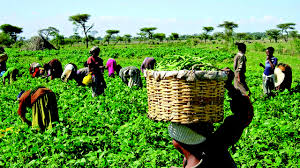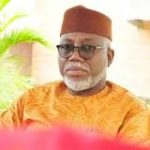Cassava farmers in Benue State are buzzing with optimism. Their fields are flourishing, and they anticipate record harvests this season. This excitement extends beyond reaping – hundreds of farmers are now Cassava Seed Entrepreneurs (CSEs), selling improved seeds within their communities.
Traditionally, Nigerian cassava yields fall below 9 tonnes per hectare. However, the Sasakawa Africa Association reports that improved varieties grown by CSEs can reach 20 tonnes or more. This not only promises higher personal yields for farmers but also provides them with an extra income stream by selling stems. This system creates a sustainable cycle, promoting the spread of these high-yielding varieties throughout the country.Farmer Vitalis Iorlaha exemplifies the success of the BASICS-II project. “The TME 419 variety is amazing,” he says, “and the ability to sell stems for extra income, along with the roots, truly brings me joy. This project is life-changing!”
Led by the International Institute of Tropical Agriculture (IITA), BASICS-II tackles cassava seed quality through a systematic approach. They connect farmers to disease-free, high-yielding planting materials by establishing a network of Cassava Seed Entrepreneurs (CSEs). These CSEs purchase stems from early generation seed producers, who are themselves linked to breeder seed producers.
In Benue and Nasarawa states, the Sasakawa Africa Association (SAA) is nurturing these CSEs. SAA has empowered 10 cooperatives to cultivate over 50 hectares of cassava seed fields, with plans to expand in 2024. This fosters income generation, employment creation, and ultimately, the widespread adoption of improved cassava varietiesDr. Godwin Atser, SAA-Nigeria Country Director, sees these cassava seed entrepreneurs as the spark for a cassava revolution in North Central Nigeria. “They’ll be the cornerstone, supplying high-quality planting materials of improved varieties to farmers throughout the region,” he declared.
Farmers echoed Dr. Atser’s enthusiasm. Mrs. Dorathy Amile praised the project for not only introducing better cassava varieties but also providing crucial training and resources that simplified cultivation. “Sasakawa is a catalyst for agricultural growth in our community,” she said. Mr. Success Agindi echoed this sentiment, highlighting the project’s role in easing access to inputs and educating them on identifying quality seeds.
Newcomers to seed production, Rosemary Usoo and Nyitse Nyaregh, acknowledged the learning curve but expressed determination to follow guidelines for maximum benefit. Jonathan Yassah, SAA’s Programme Officer and BASICS-II focal point, clarified: “Those guidelines are set by the National Agricultural Seed Council (NASC) to ensure quality. By following them, these entrepreneurs can get certified seed and access markets through SAA. Their focus should be on stems, with the roots as an added bonus.”





